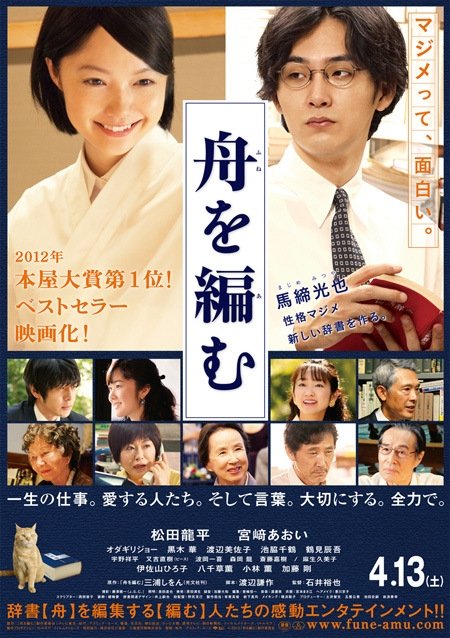Is the
coronavirus situation getting you down? Do you find it difficult to spend days
within the confines of your household? Try to pass the time with some Asian
movies! On this blog, throughout this week, I’m going to provide my
personal movie recommendations for the isolation period. So, gently sit back,
and let’s go through the 5 Japanese productions that can ease your stay at
home:
5. Tokyo Story (1953)
Synopsis: An elderly couple, Shukichi (Chishu Ryu) and Tomi
(Chieko Higashiyama) Hirayama, leave their village and come to Tokyo to visit
their grown-up children. Nevertheless, the children are so busy that they do
not have the time to look after their parents. Only the widowed
daughter-in-law, Noriko (Setsuko Hara), willingly takes time off work to be
with Mr and Mrs Hirayama.
Opinion: Without a doubt, Tokyo Story is Yasujiro Ozu’s most
acclaimed masterpiece. This black-and-white, slice-of-life story did not age at
all and its message is important even today. Many critics point out that the
film has extremely slow pace, but I believe that this is its advantage. In
Tokyo Story, Ozu managed to capture a very striking portrait of a Japanese
society in the 1950s.
4. The Great Passage (2013)
Synopsis: Mitsuya Majime (Ryuhei Matsuda) is not so much of
a salesman, but his skills in linguistics are noticed by two editors Masashi
Nishioka (Joe Odagiri) and Kouhei Araki (Kaoru Kobayashi) who offer him
collaboration on the upcoming dictionary called “The Great Passage,” the aim of
which is to bridge the gap between people and the sea of words. Nevertheless,
it takes years to complete the book. With the passage of time, we see the
changes in the life of Mitsuya and those around him.
Opinion: Be like Majime. Stay at home and read lots (I mean
lots!) of books. If you think that there’s nothing interesting in watching a
film about making a dictionary, you are wrong! The Great Passage beautifully
shows how a grand project affects the life of an individual. This film will
certainly uplift your spirits.
3. Love Letter (1995)
Synopsis: Watanabe Hiroko (Miho Nakayama) is a woman living
in the city of Kobe. Two years earlier, her fiancé Fujii Itsuki (Takashi
Kashiwabara) died in a mountain climbing accident. Still in depression and
grief, Hiroko writes a letter to her dead fiancé and sends it to the address
she found in his old high-school yearbook. However, it was the wrong Fujii
Itsuki she found in a book. The mail reaches Otaru, a northern town, far away
from Kobe, and the letter is received by Fujii Itsuki, a female (also played by
Miho Nakayama). Soon after, Watanabe Hiroko is surprised that she received a
response from her dead fiancé. In consequence, a remarkable correspondence
between the two women ensues.
Opinion: The action of this film may take place during
winter, but it is definitely one of the most heart-warming motion pictures I
have ever seen. The primary advantage of Love Letter is the enchantingly
beautiful world and its characters which Shunji Iwai carefully crafted. In
addition, the cinematography and wonderful music score will certainly leave you
speechless. Many reviewers praise Love Letter as the greatest romance story
from Japan. To me, it is the greatest sentimental story ever told! It is not so
much about love, but coming to terms with oneself.
2. Dearest (2012)
Synopsis: The film tells the story of Eiji Kurashima (Ken
Takakura), a prison guard mourning his wife who has recently passed away.
Shortly after the cremation of her body, Kurashima receives a letter in which
his wife asks him to scatter her ashes in her hometown in Nagasaki Prefecture.
In consequence, Kurashima sets out on a picturesque and phantasmagorical journey
through Japan, recalling the memories of his wife, and meeting a variety of
interesting strangers along the way.
Opinion: In this picture, director Yasuo Furuhata managed to
connect together the elements of a road film, drama, and a human interest story.
The character of Mr Kurashima is an everyman who spent the majority of his life
in loneliness until one day, he finally discovered his true love. Yet, after
the wife's passing, he goes on a journey that the two always wanted to make;
and I’ve got to say that Kurashima’s travel is taken almost straight from the
pages of Haruki Murakami’s novels. We not only get an overview of Japan’s most
beautiful tourist landmarks, but also meet several bizarre yet extraordinary
individuals who are just as lost in their daily existence as Kurashima. Unfortunately,
Dearest marks the last performance of Ken Takakura (he passed away in 2014);
however, he gives a magnificent performance.
1. After the Storm (2016)
Synopsis: Ryota Shinoda (Hiroshi Abe) is an acclaimed
novelist who does research for his latest novel by working at a detective
agency. He wastes money on gambling and can barely make ends meet. What is
more, he has to pay child support to his ex-wife, Kyoko (Yoko Maki), or he
won’t be able to meet up with their son, Shingo (Taiyo Yoshizawa), each month.
Ryota tries to get additional money by offering shady detective work to the
clients, but he mostly passes time on gambling and stalking Kyoko. He
frequently visits his widowed mother, Yoshiko (Kirin Kiki). Eventually, Ryota
makes an attempt to win back his family.
Opinion: If there is a storm (or corona) raging outside of
your house. Then, the best way to wait it over is by watching After the Storm.
As with most of Koreeda’s films, it is an engaging slice-of-life story
which gives you some food for thought. The film focuses on the intimate
portrayal of complex relationships within a family. It is quite funny, yet
saddening at the same time, watching Hiroshi Abe as a beat-down novelist who
does not know what he wants from life.
Next time: 5 Hong Kong Movies for the Isolation Period. Stay
tuned!






No comments:
Post a Comment
Comment moderation is switched on due to recent spam postings.